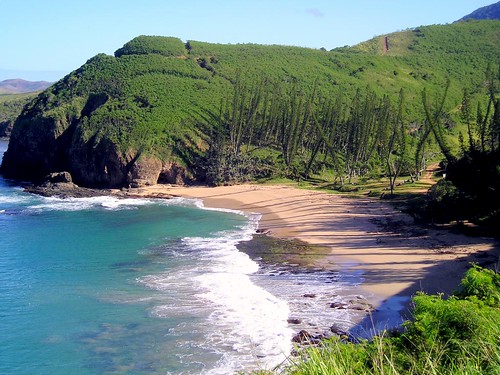法屬新喀裡多尼亞(New Caledonia)通過新法案,劃設太平洋上一塊廣大未經開發的水域為「珊瑚海國家公園」,將成為全世界最大的保護區。
珊瑚海國家公園位於太平洋上,澳洲東邊2000英哩處,涵蓋法屬新喀裡多尼亞的所有海域,近至沿岸12至200海浬的範圍,總面積130萬平方公里,相當於德國的3倍大,是世界上最大的保護區。
世界自然保育聯盟(IUCN)說,新國家公園涵蓋超過4500平方公里維繫漁業生態的珊瑚礁,有25種海洋哺乳動物、48種鯊魚和5種海龜出沒,更是19種築巢鳥類的棲地。
新喀裡多尼亞是全世界唯一的獨立生物多樣性熱點地區,沿海有全世界最大的潟湖,被聯合國教科文組織列為世界遺產。
接下來新喀裡多尼亞將定義出國家公園的保護等級,新法令將讓珊瑚海國家公園成為多用途的海洋保護區,從中規劃出不同經濟和保育活動範圍。珊瑚海國家公園每年產出3000噸的漁產,供養新喀裡多尼亞25萬人口,也是當地永續經濟的推手。
保育國際(Conservation International)是總部位於維吉尼亞州的非營利組織,在新喀裡多尼亞深耕超過12年,致力於開發和執行當地土地與海洋保育「整合、永續的解決方案」。
接下來的3年,保育國際駐新喀裡多尼亞和該區域的專家,將協助新喀裡多尼亞政府設計國家公園的空間規劃和管理計畫,資助計畫所需的重點科學研究,並將國家公園的貢獻整合進「太平洋海景」計畫和「大海網絡」大型海洋保護區研究管理網絡中。
A vast expanse of pristine Pacific Ocean is now the world’s largest protected area under a new law passed by the government of New Caledonia creating the Natural Park of the Coral Sea.
Located 2,000 miles east of Australia in the Pacific Ocean, the Natural Park of the Coral Sea covers all of the French territory’s marine waters, extending 12 to 200 nautical miles from its coasts.
The decree creates a multi-use, marine protected area which extends across 1.3 million square kilometers, an area three times the size of Germany, making it the largest protected area in the world.
The International Union for the Conservation of Nature, IUCN, says the new park includes more than 4,500 square kilometers of fishery-supporting coral reefs.
Twenty-five species of marine mammals, 48 shark species, and five species of marine turtles swim through these newly protected waters and the park also shelters 19 species of nesting birds.
New Caledonia is the world’s only stand-alone Biodiversity Hotspot, and its coastal waters hold the world’s largest lagoon, which has earned the territory UNESCO World Heritage Site status.
In the next phase of development, the levels of protection will be defined so that the Natural Park of the Coral Sea will become a multiple use area with different zones for economic activity and conservation.
The park’s ecosystems generate up to 3,000 tons of fish each year, providing food to New Caledonia’s quarter of a million people and an economic driver for the territory’s sustainable economy.
The Virginia-based nonprofit Conservation International has had a presence in New Caledonia for more than 12 years, working to develop and implement what the organization calls “integrated, sustainable solutions” on land and at sea.
Over the next three years, Conservation International experts in New Caledonia and the region will help the government shape the park’s spatial planning and management plan, fund key scientific research to inform that plan, and integrate New Caledonia’s contributions within the Pacific Oceanscape and Big Ocean Network.
※ 全文及圖片詳見:ENS










